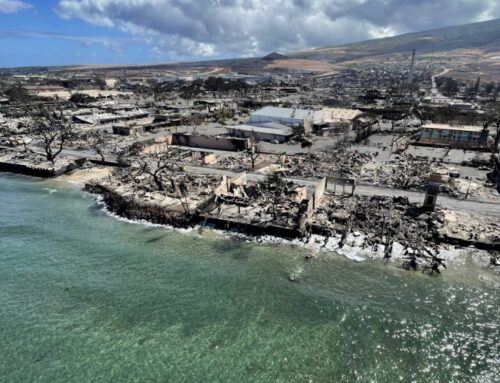The second commercial rent survey conducted during the pandemic found that more than 40% of commercial tenants did not paid their rent in full from April through September, and 9.4% made no payments at all.
“It’s just showing that the situation’s getting gradually worse, said Ryan Tanaka, president of Island Business Management, who organized the survey with the state Department of Business, Economic Development and Tourism and more than a dozen other businesses and organizations.
The survey had 1,474 respondents from 19 primary industries, and 90.3% employed fewer than 50 full-time-equivalent employees as of the end of 2019. The majority, 1,037, were located on Oahu and more than a third were in the food services or retail trades.
“Between these two sectors, over one third of our state workforce comes from retail and restaurants,” said Tanaka.
Despite the recent reopening of tourism, Tanaka said the fact that 86% of the businesses expect to see revenue decline this year, and 82% expect next year to be no better is important from an economic point of view, since less revenue has a trickle-down effect that translates to less revenue for vendors and less tax revenue for the state. More than 41% of the respondents said they expect revenue for 2020 to be half of what it was last year.
“The outlook is grim,” he said.
One in three businesses reported extreme hardship paying rent, employees and operating expenses, meaning they said there was a less than 75% probability of being able to pay. Only 10.1% reported no hardship at all, meaning they were able to pay 100% of their expenses, while 89.9% reported some degree of hardship.
A quarter of the respondents said they received a rent deferral, while only 11.2% received a rent reduction and 5.4% said their rental agreements had been restructured. Commercial real estate brokers say landlords will often renegotiate a lease, asking for additional time in exchange for rent concessions.
Tanaka, who is also working on developing a grant program that would use CARES Act funds to help commercial tenants pay rent, pointed out that the 5.4% was an improvement from 2% during the first survey but said “it means the vast amount of negotiations are currently taking place.”
It’s also the only way that landlords and tenants can set new expectations going forward, he said.
“There’s going to be many silent deaths,” he said. “One in three businesses is going to face extreme hardship.”






